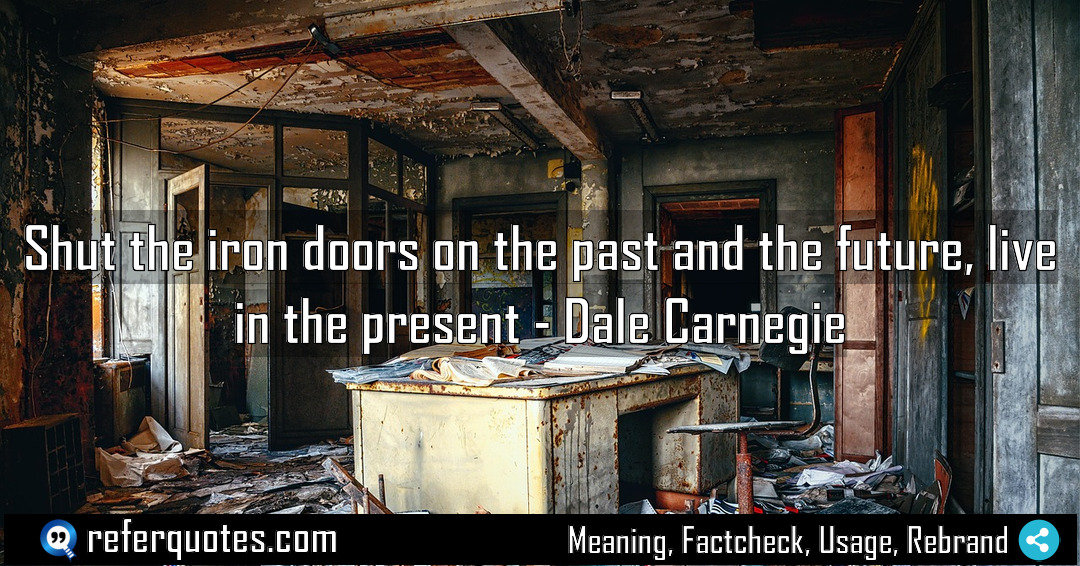“Shut the iron doors on the past…” is Carnegie’s powerful call to stop letting yesterday’s regrets and tomorrow’s anxieties steal your present moment. It’s about active mental discipline, not passive living.
Share Image Quote:Table of Contents
Meaning
The core message is radical mental hygiene: deliberately and forcefully sealing off the mental energy drains of past regrets and future worries so you can invest that energy fully in the present.
Explanation
Look, I’ve worked with this principle for years, and here’s the real deal. Most people misunderstand it. They think it’s about positive thinking. It’s not. It’s about mental architecture. You’re building a fortress for your mind. The “iron doors” aren’t a suggestion; they’re a command. You have to be the one to actively slam them shut on that re-run of last week’s mistake or that terrifying “what-if” scenario about next quarter. It’s a daily, sometimes hourly, practice of pulling your focus back from the time-travel our brains love to do and anchoring it in the only moment where you actually have any agency: right now.
Quote Summary
| Context | Attributes |
|---|---|
| Original Language | English (3668) |
| Category | Wisdom (385) |
| Topics | acceptance (73), present (5) |
| Literary Style | metaphoric (105) |
| Emotion / Mood | calm (491) |
| Overall Quote Score | 70 (55) |
Origin & Factcheck
This is correctly attributed to Dale Carnegie in his 1948 classic, How to Stop Worrying and Start Living, published in the United States. You won’t find it in his more famous How to Win Friends and Influence People, and it’s often misquoted or watered down, losing that powerful “iron doors” imagery.
Attribution Summary
| Context | Attributes |
|---|---|
| Author | Dale Carnegie (408) |
| Source Type | Book (4032) |
| Source/Book Name | How to Stop Worrying and Start Living (31) |
| Origin Timeperiod | Modern (530) |
| Original Language | English (3668) |
| Authenticity | Verified (4032) |
Author Bio
Dale Carnegie(1888), an American writer received worldwide recognition for his influential books on relationship, leadership, and public speaking. His books and courses focus on human relations, and self confidence as the foundation for success. Among his timeless classics, the Dale Carnegie book list includes How to Win Friends and Influence People is the most influential which inspires millions even today for professional growth.
Official Website |Facebook | X | Instagram | YouTube |
Where is this quotation located?
| Quotation | Shut the iron doors on the past and the future, live in the present |
| Book Details | Publication Year/Date: 1948 (first edition) ISBN/Unique Identifier: 9780671035976 (widely available reprint) Last edition. Number of pages: Common Pocket/Simon & Schuster reprints ~352–464 pages (varies by printing) |
| Where is it? | Chapter Live in Day Tight Compartments, Unverified – Edition 1948, page range ~31–36 |
